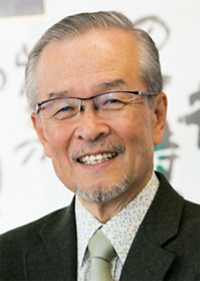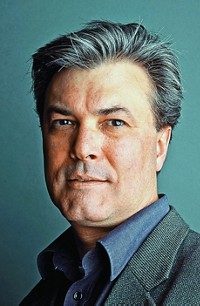Advertisement
Grab your lab coat. Let's get started
Welcome!
Welcome!
Create an account below to get 6 C&EN articles per month, receive newsletters and more - all free.
It seems this is your first time logging in online. Please enter the following information to continue.
As an ACS member you automatically get access to this site. All we need is few more details to create your reading experience.
Not you? Sign in with a different account.
Not you? Sign in with a different account.
ERROR 1
ERROR 1
ERROR 2
ERROR 2
ERROR 2
ERROR 2
ERROR 2
Password and Confirm password must match.
If you have an ACS member number, please enter it here so we can link this account to your membership. (optional)
ERROR 2
ACS values your privacy. By submitting your information, you are gaining access to C&EN and subscribing to our weekly newsletter. We use the information you provide to make your reading experience better, and we will never sell your data to third party members.
Synthesis
Frederic Stanley Kipping Award in Silicon Chemistry
Recipients are honored for contributions of major significance to chemistry
by Linda Raber
February 11, 2008
| A version of this story appeared in
Volume 86, Issue 6
Sponsored by Dow Corning Corp.
T. Don Tilley, 53, professor of chemistry at the University of California, Berkeley, is being honored for his many significant contributions to silicon chemistry, ranging from silicon-containing polymers, π-systems involving silicon, and silicon-based supramolecular chemistry, to transition-metal-silicon chemistry. According to a colleague, Tilley's achievements place him among the most important researchers in both organic and inorganic silicon chemistry in the modern era.
Tilley's early research in silicon chemistry involved development of reactive d0 transition-metal-silicon compounds for the activation of small molecules and the synthesis of new silicon-based compounds. Much of this early work was based on observation of the first carbon monoxide insertions into metal-silicon bonds and elaborations of this new carbonylation chemistry. For example, Tilley designed the first synthesis of a stable formylsilane. Formylsilanes are now used as synthetic intermediates in organic transformations.
In the mid-1980s, Tilley and his student Hee-Gweon Woo began synthetic and mechanistic investigations of reactions of silicon-hydrogen bonds with d0 metal complexes. Thorough mechanistic studies revealed these "σ bond metathesis" processes as occurring in a concerted manner via four-centered transition states. Tilley showed that such reactions form the basis for a new polymerization mechanism by which early metal complexes catalyze the dehydropolymerization of hydrosilanes to polysilanes. This work established a new type of polymerization mechanism and suggested new possibilities for catalytic processes involving silicon-element bond formation.
In 1993, Tilley and coworker Toru Imori applied this chemistry to the synthesis of a previously unknown type of polymer, the polystannanes. More recent synthetic and mechanistic work by the Tilley group has led to the discovery of highly active metal catalysts for reactions involving σ-bond metathesis of C-H, Si-C, Si-H, and Sn-H bonds. This work has revealed that lanthanide and cationic group 4 complexes are particularly active in mediating bond-breaking and bond-forming reactions at silicon.
More recently, Tilley and doctoral student Aaron Sadow made significant progress toward the goal of developing homogeneous catalysts for the selective silylation of inert hydrocarbons. In one study, they showed that an unusual hafnium complex possessing an α-agostic Si-H interaction activates arenes via σ-bond metathesis, with production of metal-aryl derivatives and the corresponding hydrosilane. By moving to scandium-silicon systems, these researchers accomplished the first catalytic silylation of a saturated hydrocarbon in the scandium-catalyzed dehydrocoupling of Ph2SiH2 with methane (to Ph2HSi-CH3), where Ph is phenyl.
For many years, a primary goal in metal-silicon chemistry was the definitive isolation and characterization of a transition-metal silylene complex, which would be analogous to the important carbene complexes. Tilley and his group are well-known for synthesizing the first examples of such species and for establishing a number of reactivity patterns for these new compounds. For example, he and student Paul B. Glaser investigated an osmium silylene complex that participates in redox reactions that result in carbon-halogen bond cleavages.
Another result of Tilley's work with silylene complexes is synthesis of the first silicon compound with significant triple-bond character: a molybdenum silylyne complex. This species, obtained by Tilley's student Benjamin Mork, possesses a roughly linear Mo-Si-C linkage.
Tilley received a B.S. degree from the University of Texas in 1977 and a Ph.D. from UC Berkeley in 1982. After 11 years on the faculty at UC San Diego, he joined the faculty of UC Berkeley in 1994. He received the ACS Award in Organometallic Chemistry in 2002 and the Royal Society of Chemistry's 2007 Centenary Lectureship.
The award address will be presented before the Division of Inorganic Chemistry.






Join the conversation
Contact the reporter
Submit a Letter to the Editor for publication
Engage with us on Twitter